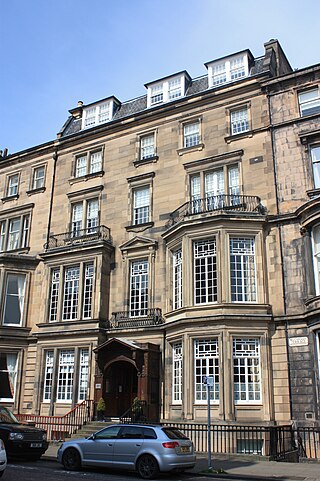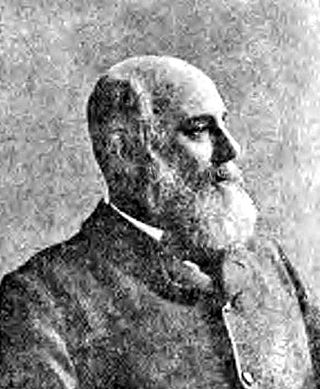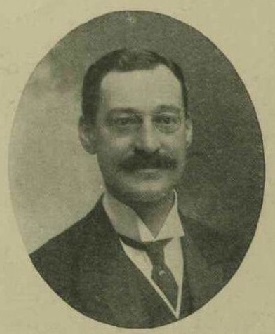Related Research Articles

John Ritchie Findlay was a Scottish newspaper owner and philanthropist.
The Smoot–Rowlett family is a U.S. political family. It is linked by marriage to the Kimball–Snow–Woolley family.
Owen Owen was a Liverpool-based operator of department stores in the United Kingdom and Canada. Beginning with a drapery shop in Liverpool,a chain of department stores was built up,often by taking over rival retailers. The company remained under Owen / Norman family control until the 1980s,and the brand ceased to be used in 2007.
More than 1,500 African American officeholders served during the Reconstruction era (1865–1877) and in the years after Reconstruction before white supremacy,disenfranchisement,and the Democratic Party fully reasserted control in Southern states. Historian Canter Brown Jr. noted that in some states,such as Florida,the highest number of African Americans were elected or appointed to offices after the end of Reconstruction in 1877. The following is a partial list of notable African American officeholders from the end of the Civil War until before 1900. Dates listed are the year that a term states or the range of years served if multiple terms.

Samuel Laing was a British railway administrator,politician,and writer on science and religion during the Victorian era.

Henry Willis,also known as "Father" Willis,was an English organ player and builder,who is regarded as the foremost organ builder of the Victorian era. His company Henry Willis &Sons remains in business.

Sir Charles Thomas Dyke Acland,12th Baronet,DL,JP,of Killerton in Devon and of Holnicote in the parish of Selworthy in Somerset,was a large landowner and a British politician and Barrister-at-Law. He was known to family and friends as "Charlie",but demanded to be known in public as "Sir Thomas",not only because that was the traditional name of the Aclands,there having been a "Sir Thomas Acland" at Killerton for 170 years,but also because following the creation of a second and much newer Acland Baronetcy in 1890,for his uncle Sir Henry Wentworth Acland,1st Baronet,he wished people to know "which was the real head and owner of Killerton".
Sir Arthur Bower Forwood,1st Baronet,was an English merchant,shipowner,and politician. He was a Conservative Member of Parliament from 1885 until his death,and in 1895 he was created a baronet.

Sir Arthur Pendarves Vivian was a British industrialist,mine-owner and Liberal politician from the Vivian family,who worked in South Wales and Cornwall,and sat in the House of Commons from 1868 to 1885.

Charles William Mills,2nd Baron Hillingdon was a British banker and Conservative politician who sat in the House of Commons from 1885 to 1892,speaking once,in 1889.

Sir (Thomas) William Evans,1st Baronet was an English Liberal politician who represented the constituency of South Derbyshire.

Sir Stuart Montagu Samuel,1st Baronet was a British banker and Liberal politician who was Member of Parliament for Whitechapel.
Albert Edwin Reed (1846–1920) was the founder of Reed Elsevier,formerly Reed International,one the United Kingdom's largest professional publishing businesses. Reed was also a Wesleyan local preacher. His twin sons Albert Ralph Reed —Sir Albert Ralph Reed—and Edward Percy Reed,born in 1884,inherited A.E. Reed and Co in 1920 when their father died.

Sir Robert William Perks,1st Baronet was a British Liberal politician,lawyer,financier,and company director.

Sir William Phipson Beale,1st Baronet,KC was a British barrister and Liberal Party politician.

Sir John Archibald Willox was a British journalist,newspaper owner and Conservative Party politician from Liverpool. He rose through the ranks to become the owner of the Liverpool Courier newspaper and sat in the House of Commons from 1892 to 1905.

Robert John Dickson Burnie was a Liberal politician who served as MP for the Swansea Town constituency from 1892 to 1895. He was regarded as being on the radical wing of the party and was popular with working-class electors. Defeated by Sir John Llewelyn in 1895 he was rejected as a candidate for the constituency in 1900 due to his opposition to the South African War.
Pwll-coch is an area part of the district of Canton in Cardiff,Wales. It was formerly a separate hamlet in the parish of Llandaff near Cardiff. It was located on the junction of Windway Road and the main road from Cardiff to Ely,a short distance from Ely Bridge.
References
- ↑ "Mr Thomas Owen (Hansard)". api.parliament.uk. Retrieved 7 January 2020.
- ↑ The Cambrian News, 15 July 1898, p.3.
- ↑ Bemrose, Christopher (1986). "Bathford Paper Mill". Bristol Industrial Archaeological Society Journal (19): 6.
- ↑ Western Daily Press, 28 April 1885, p.3.
- ↑ The Financial Times, 2 September 1889, p.4.
- ↑ The Financial Times, 14 March 1892, p.3.